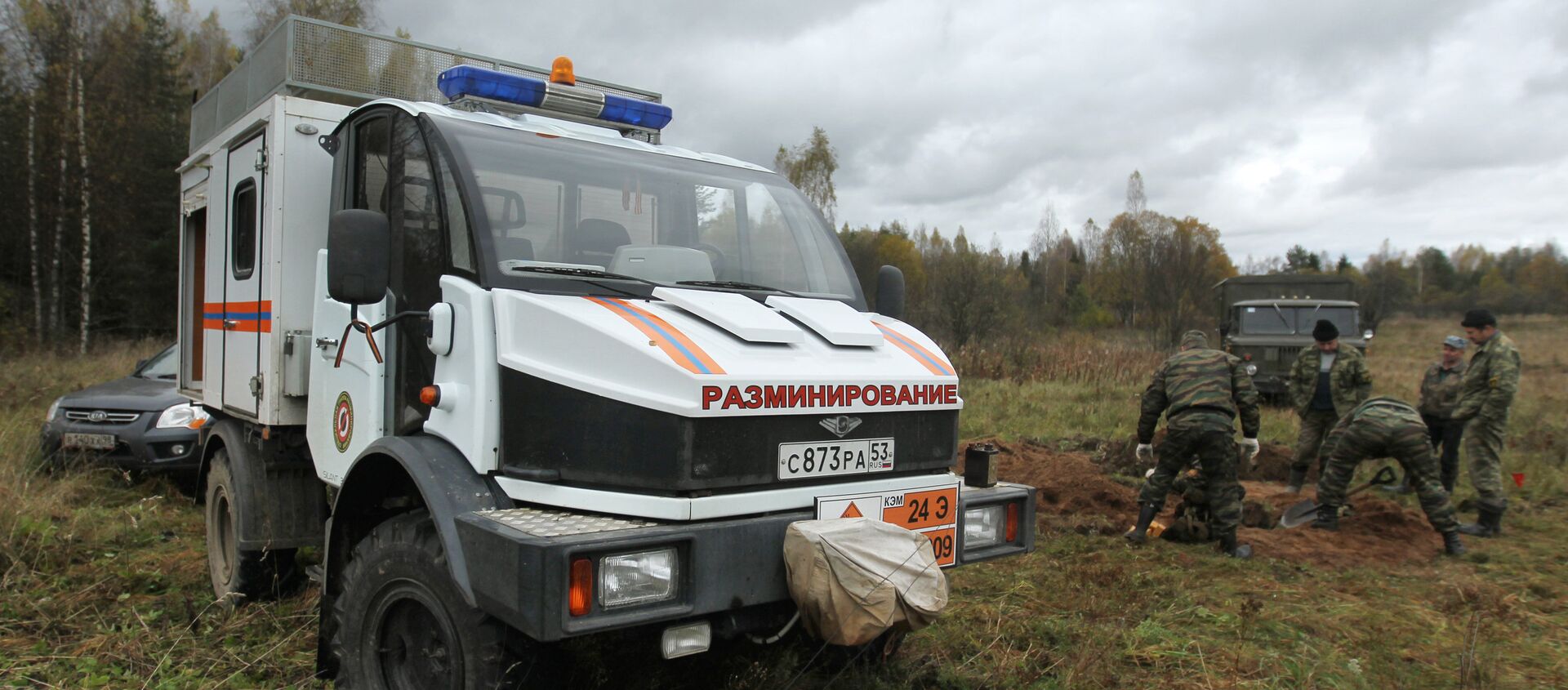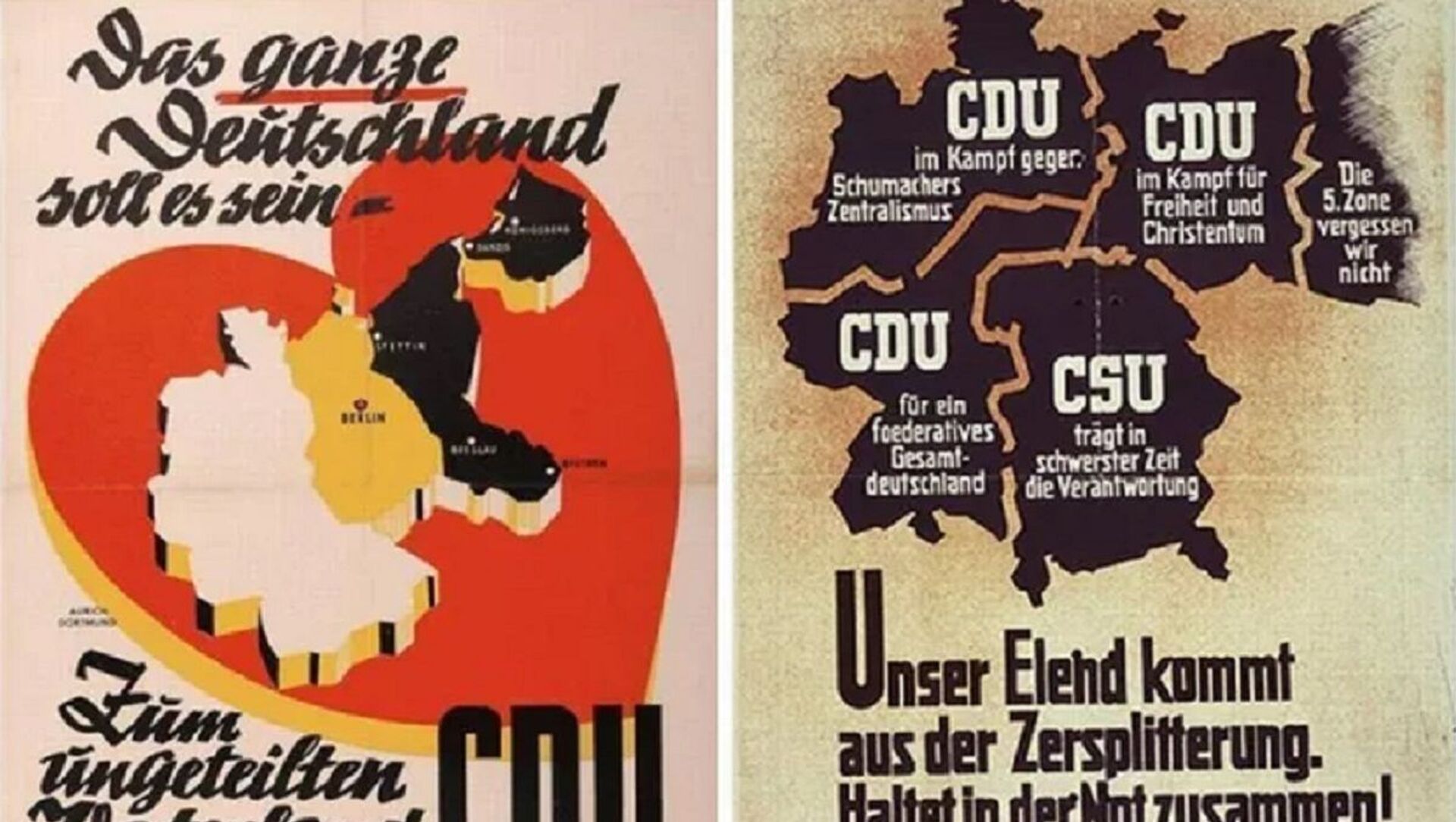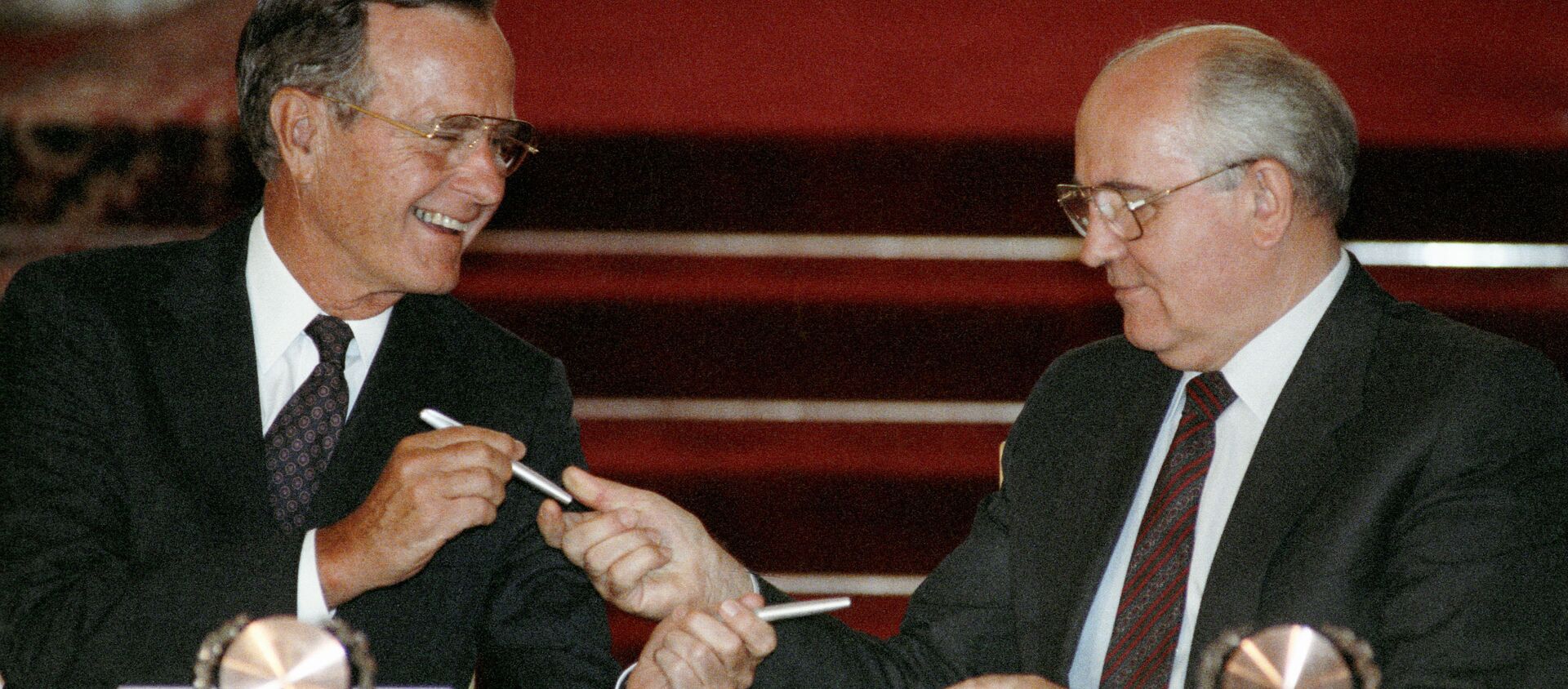https://sputnikglobe.com/20210827/belch-from-the-cold-war-posters-appear-in-germany-showing-part-of-russia-as-german-territory-1083731677.html
'Belch From the Cold War'? Posters Appear in Germany Showing Part of Russia as German Territory
'Belch From the Cold War'? Posters Appear in Germany Showing Part of Russia as German Territory
Sputnik International
Situated between Poland, Lithuania and the Baltic Sea, the modern-day region of Kaliningrad became a part of Russia in the aftermath of the Second World War as... 27.08.2021, Sputnik International
2021-08-27T13:28+0000
2021-08-27T13:28+0000
2021-08-27T14:09+0000
europe
world
newsfeed
https://cdn1.img.sputnikglobe.com/img/07e5/08/1b/1083730333_0:0:1201:678_1920x0_80_0_0_fb027632a44019a51ce0c0ff5ebf5a62.jpg
Russian officials have expressed indignation after unidentified persons in the northeastern German state of Mecklenburg-Western Pomerania hung copies of old election posters from 1949 featuring a map of Germany in its pre-WWII borders, including areas of present-day Russia, Poland and Lithuania.The posters, reported on by local newspaper Nordkurier, appeared in the town of Teterow, in the district of Rostock, and other communities in the region. The posters were originally used in the 1949 elections in the then newly-created West Germany by the Christian Democratic Union and the Christian Social Union, the pair of parties which now make up Chancellor Angela Merkel’s ruling coalition together with the Social Democratic Party.The posters' appearance comes ahead of parliamentary elections in Germany, which are set to take place on 26 September.Police in Teterow told reporters that an investigation into the matter had been entrusted to the prosecutor’s office in Rostock, with the state security commissioner’s office also asked to check whether the posters have appeared in any other regions.Russia IrkedThe spokesman suggested that the situation surrounding the posters makes it important to understand what territorial claims certain political forces in contemporary Germany might have.Authorities in Kaliningrad have expressed similar concerns, with a press spokesman expressing “hope that this is just a technical error by the poster designer, and not a deliberate political action”l The spokesman similarly emphasised that “as far as we know, the German side has no claims to the territorial integrity of our country.”Russian lawmakers were similarly perturbed by the posters, with Duma lawmaker Alexander Pyatikop calling them a “belch” from the Cold War and suggesting that there will always be “representatives of revanchist forces who use the sentiments of a certain group of potential voters to score political points.” Pyatikop stressed that such revanchist sentiments had “no grounds” in reality, “whether legal, political or economic.” Senator Sergei Tsekov called the posters “a provocation” and suggested that a “serious investigation” should be conducted by German authorities to determine who was responsible and punish them.HistoryRussia’s Kaliningrad is situated on the territory of the former East Prussia. Following the Second World War, on the basis of agreements made at the Potsdam conference, two thirds of East Prussia was awarded to Poland, and the remaining third, including the city of Konigsberg (now Kaliningrad), to the USSR, now modern-day Russia and Lithuania.During the Cold War, officials and political forces in West Germany refused to recognise East Prussia’s loss to Poland and the USSR for several decades. In 1970, German Chancellor Willy Brandt signed a treaty with Poland recognising Poland’s postwar Western borders, including areas of former East Prussia, as part of his policy of Ostpolitik. No similar treaty was reached with Moscow until 1990 under the terms of the Two Plus Four Agreement on German reunification (i.e. the annexation of East Germany by the Federal Republic). Since then, German authorities have expressed no interest in trying to ‘return’ Kaliningrad, a majority of whose population is now comprised of ethnic Russians, Ukrainians and Belarusians.
https://sputnikglobe.com/20171010/russia-kaliningrad-region-ammunition-1058107262.html
https://sputnikglobe.com/20190402/gorbachev-nato-expansion-reasons-1073764558.html
Sputnik International
feedback@sputniknews.com
+74956456601
MIA „Rossiya Segodnya“
2021
News
en_EN
Sputnik International
feedback@sputniknews.com
+74956456601
MIA „Rossiya Segodnya“
Sputnik International
feedback@sputniknews.com
+74956456601
MIA „Rossiya Segodnya“
europe, newsfeed
'Belch From the Cold War'? Posters Appear in Germany Showing Part of Russia as German Territory
13:28 GMT 27.08.2021 (Updated: 14:09 GMT 27.08.2021) Situated between Poland, Lithuania and the Baltic Sea, the modern-day region of Kaliningrad became a part of Russia in the aftermath of the Second World War as compensation for Nazi aggression against the USSR. The region is Russia's western-most region, and is an exclave detached from the mainland.
Russian officials have expressed indignation after unidentified persons in the northeastern German state of Mecklenburg-Western Pomerania hung copies of old election posters from 1949 featuring a map of Germany in its pre-WWII borders, including areas of present-day Russia, Poland and Lithuania.
The posters,
reported on by local newspaper Nordkurier, appeared in the town of Teterow, in the district of Rostock, and other communities in the region. The posters were originally used in the 1949 elections in the then newly-created West Germany by the Christian Democratic Union and the Christian Social Union, the pair of parties which now make up Chancellor Angela Merkel’s ruling coalition together with the Social Democratic Party.
Local CDU spokesman Hannes Dettmann assured Nordkurier that the party had nothing to do with the posters, stressing that this form of campaigning was illegal and that the posters should be removed immediately. The party’s regional offices have asked activists to contact local authorities to see about removing any posters that are found.
The posters' appearance comes ahead of parliamentary elections in Germany, which are set to take place on 26 September.
Police in Teterow told reporters that an investigation into the matter had been entrusted to the prosecutor’s office in Rostock, with the state security commissioner’s office also asked to check whether the posters have appeared in any other regions.
Russian officials condemned the posters on Friday, with Kremlin spokesman Dmitry Peskov telling reporters that “our reaction is negative.” Peskov stressed, however, that the boundaries depicted in the posters have “nothing to do with the official position of Berlin and, of course, Berlin does not officially question the territorial integrity of the Russian Federation”.

10 October 2017, 15:40 GMT
The spokesman suggested that the situation surrounding the posters makes it important to understand what territorial claims certain political forces in contemporary Germany might have.
Authorities in Kaliningrad have expressed similar concerns, with a press spokesman expressing “hope that this is just a technical error by the poster designer, and not a deliberate political action”l The spokesman similarly emphasised that “as far as we know, the German side has no claims to the territorial integrity of our country.”
Russian lawmakers were similarly perturbed by the posters, with Duma lawmaker Alexander Pyatikop calling them a “belch” from the Cold War and suggesting that there will always be “representatives of revanchist forces who use the sentiments of a certain group of potential voters to score political points.” Pyatikop stressed that such revanchist sentiments had “no grounds” in reality, “whether legal, political or economic.” Senator Sergei Tsekov called the posters “a provocation” and suggested that a “serious investigation” should be conducted by German authorities to determine who was responsible and punish them.
Russia’s Kaliningrad is situated on the territory of the former East Prussia. Following the Second World War, on the basis of agreements made at the Potsdam conference, two thirds of East Prussia was awarded to Poland, and the remaining third, including the city of Konigsberg (now Kaliningrad), to the USSR, now modern-day Russia and Lithuania.
During the Cold War, officials and political forces in West Germany refused to recognise East Prussia’s loss to Poland and the USSR for several decades. In 1970, German Chancellor Willy Brandt signed a treaty with Poland recognising Poland’s postwar Western borders, including areas of former East Prussia, as part of his policy of Ostpolitik. No similar treaty was reached with Moscow until 1990 under the terms of the Two Plus Four Agreement on German reunification (i.e. the annexation of East Germany by the Federal Republic). Since then, German authorities have expressed no interest in trying to ‘return’ Kaliningrad, a majority of whose population is now comprised of ethnic Russians, Ukrainians and Belarusians.




